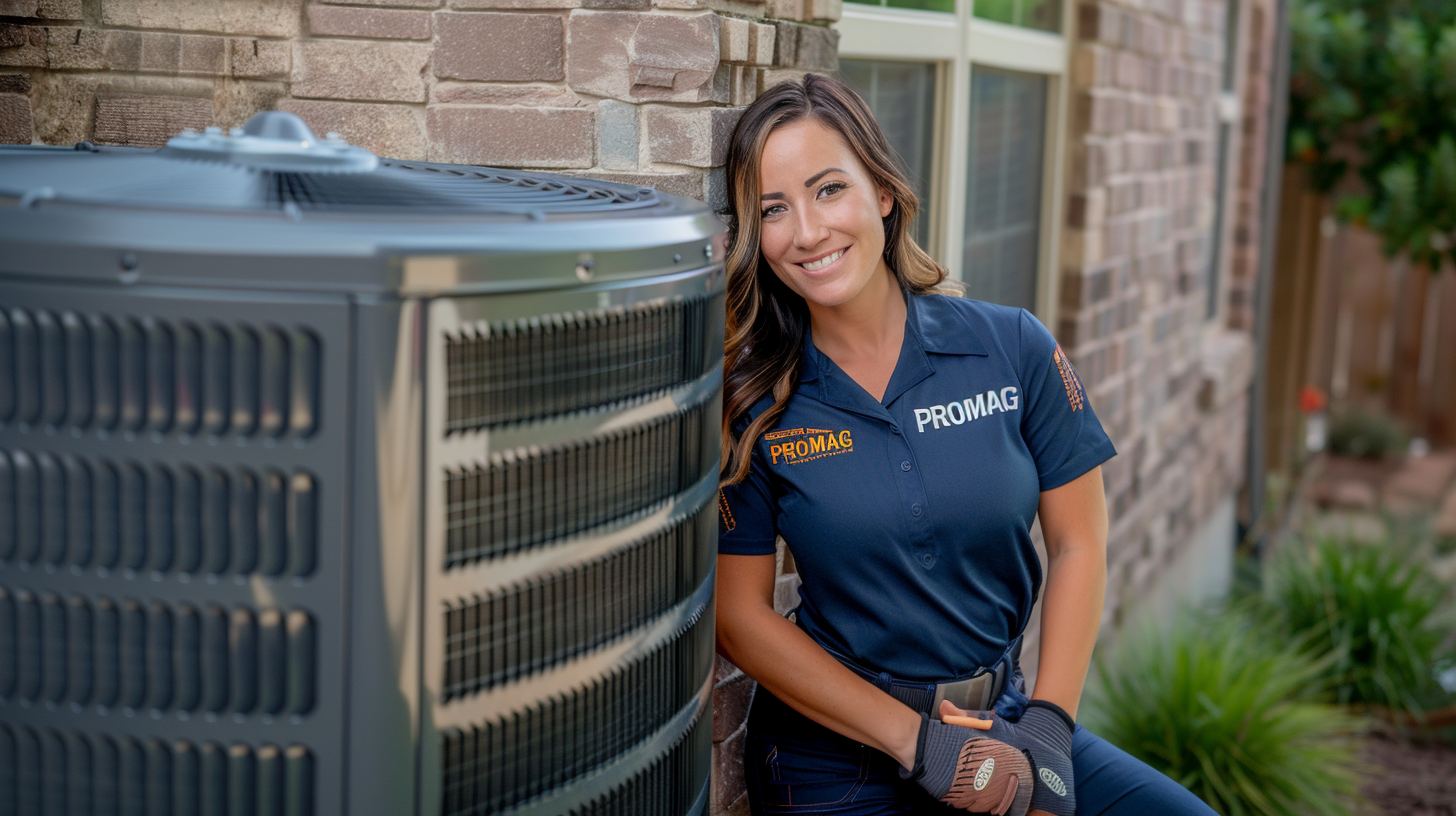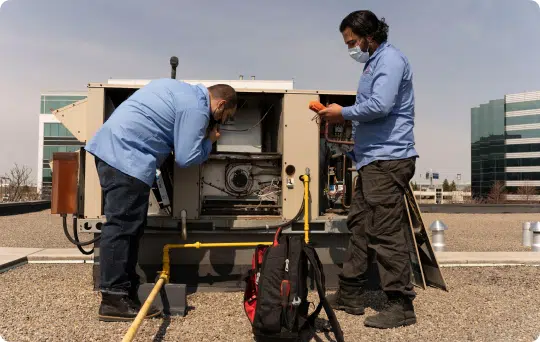Cooling Solutions You Can Rely On by DMAKS HVAC Professionals.
Cooling Solutions You Can Rely On by DMAKS HVAC Professionals.
Blog Article
Energy-Efficient Cooling And Heating Solutions to Minimize Utility Bills
As power expenses proceed to rise, the significance of energy-efficient cooling and heating systems comes to be increasingly obvious. These systems not only promise substantial cost savings on utility expenses but likewise add to a more sustainable future by lessening power usage. With various choices available, including geothermal heatpump and ductless mini-splits, homeowner deal with a wide variety of options that can improve convenience and air high quality. Nevertheless, comprehending the essential attributes and upkeep needs is vital to making best use of these benefits. What variables should be focused on when picking the appropriate system for your requirements?
Benefits of Energy-Efficient A/c Equipments
Energy-efficient Heating and cooling systems provide numerous benefits that prolong past plain expense savings. By consuming much less energy, these systems contribute to reduce greenhouse gas emissions, helping to deal with environment change and advertise sustainability.
Additionally, energy-efficient heating and cooling systems frequently provide boosted comfort degrees. Much of these systems include innovative innovation that enables better temperature level control and improved air top quality (DMAKS HVAC). This causes a much healthier interior setting, which is specifically important for individuals with allergic reactions or respiratory system issues
Furthermore, investing in energy-efficient HVAC systems can enhance building worth. As more consumers prioritize power efficiency, homes and buildings furnished with these systems might bring in greater proposals in the realty market.
Sorts Of Energy-Efficient Heating And Cooling Options
Exactly how can house owners and services choose one of the most suitable energy-efficient a/c options for their demands? The marketplace supplies a variety of energy-efficient HVAC systems, each designed to boost convenience while minimizing energy consumption.
One alternative is the variable cooling agent circulation (VRF) system, which successfully manages the temperature level in multiple zones within a building. This system adapts its cooling agent flow to match the wanted temperature level, causing significant power financial savings.
One more preferred choice is geothermal heat pumps, which use the earth's steady temperature to warmth and great areas. By moving warmth to and from the ground, these systems demonstrate remarkable effectiveness, especially in moderate climates.
In addition, ductless mini-split systems offer an energy-efficient alternative for homes doing not have ductwork. These systems enable zone-specific cooling and heating, decreasing power waste in unoccupied areas.
Last but not least, high-efficiency heaters and a/c, with innovative SEER and AFUE rankings, provide trusted climate control while taking in much less power than standard versions. By evaluating these alternatives, property owners and companies can pick a cooling and heating system customized to their details requirements and energy efficiency goals.
Trick Features to Think About

Following, explore the kind of compressor used in the system. DMAKS HVAC. Variable-speed compressors can readjust their outcome to match the home heating or cooling need, bring about enhanced comfort and power cost savings contrasted to single-speed models. Furthermore, look for systems outfitted with smart thermostats that provide programmable setups and remote accessibility, allowing for far better control over power usage
Another essential function is the system's air purification capacity. High-efficiency filters can improve indoor air quality and minimize energy consumption by ensuring the system check this site out operates successfully. In addition, take into consideration the sort of cooling agent utilized; modern systems often employ green refrigerants that have a lower environmental influence.
Lastly, ensure that the system works with zoning innovation, which allows for customized temperature level control in various locations of your home, boosting comfort while decreasing energy usage.
Tips for Picking the Right System


Next, take into consideration energy performance scores, specifically the Seasonal Power Effectiveness Ratio (SEER) for cooling down systems and the Annual Fuel Usage Performance (AFUE) for furnace. Higher scores indicate greater effectiveness, which can bring about considerable financial savings on utility costs over time.
Furthermore, review the kind of cooling and heating system that finest fits your way of living and budget plan. Options consist of central air conditioning, ductless mini-splits, and heatpump, each with its own collection of benefits and downsides.
Don't ignore the relevance of proper installation and sizing; an inaccurately sized system can lead to inefficiencies and boosted wear. Lastly, seek advice from a specialist HVAC specialist to get expert referrals tailored to your home's distinct needs. This comprehensive strategy will ensure that you choose an energy-efficient heating and cooling system that meets your requirements and spending plan effectively.
Upkeep for Optimal Performance
Once the ideal HVAC system remains in location, recurring upkeep ends up being key to ensuring optimum effectiveness and durability. A well-kept system runs a lot more effectively, resulting in reduced power intake and reduced utility expenses. Normal examinations and tune-ups should be scheduled a minimum of twice a year-- once before the cooling season and once prior to the home heating period.

House owners should also be attentive regarding checking their a/c system's efficiency. Unusual noises, fluctuating temperature levels, or raised energy bills can show underlying concerns that need prompt interest. By addressing these issues without delay, house owners can avoid costly repairs and prolong the lifespan of their systems.
Spending in a maintenance plan with a certified technician not only boosts performance however likewise offers comfort, understanding that the system is operating at its ideal. DMAKS HVAC. Regular upkeep is for that reason important for maintaining power efficiency and lowering general operational expenses
Conclusion
To conclude, energy-efficient cooling and heating systems provide a feasible option for minimizing utility costs while enhancing comfort and air high quality. By integrating advanced innovations and choices such as geothermal heatpump and ductless mini-splits, homeowner can attain substantial energy financial savings and add to environmental sustainability. Cautious consideration of system features and continuous maintenance further guarantees optimal efficiency, making energy-efficient systems a sensible investment for both economic and environmental advantages.
Report this page